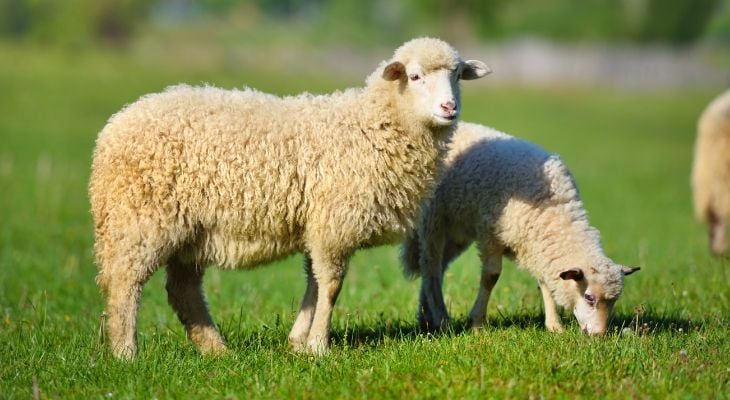Sheep are adorable with their naturally wooly coats. With all that wool comes responsibility, though. If you're considering raising sheep, you should know what it entails to take care of them. That way, you're prepared for their arrival and aren't overwhelmed after you adopt them.
Housing
What type of outdoor housing you have for your sheep will depend on the climate you have. For instance, if you live in an area that gets cold during winter, you'll need a barn or pole building. On the other hand, if you live in an area with a milder climate, you can build them a simple shelter that keeps them safe from the elements.
Fencing
The fencing you choose doesn't have to be extremely tall to keep your sheep in. Generally, you want to make the fence between 32 to 40 inches tall.
You'll want to choose a woven wire fence, electric wire fence, or barbed wire fence to keep your sheep in. You'll want them to have enough room to roam and graze. To get an idea of how much outdoor space you need for sheep, contact your local government to ensure you're following the rules of your area.
Feeding and Water
Make sure your sheep have fresh water each day. They should always have water available to prevent dehydration.
Sheep are grazers, but you need to feed them hay as well. The hay that you feed them should be free of a moldy or musty smell. If it doesn't smell normal to you, you should avoid feeding the hay to them and buy fresh.
In the winter, include grain in their diet if you notice they're losing weight. This will help to compensate.
Shearing a sheep isn't an easy feat. It's best left up to the professional sheep shearer. This will also reduce the stress you have when it comes to caring for your sheep. Plus, if you plan on showing your sheep, they have certain rules on how the shearing is done. How the sheep are shorn also depends on their breed. Once a year in the spring, you should contact a shearer and have your sheep sheared. The shearer may also trim your sheep's nails.
Sheep have unique needs due to their wool. However, this doesn't make them bad pets. It just means that you have an extra step to take. Other than that, caring for sheep is relatively similar to other farm animals.


